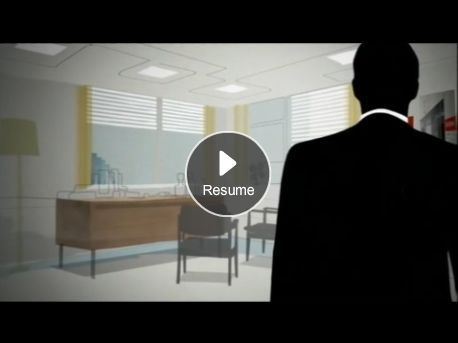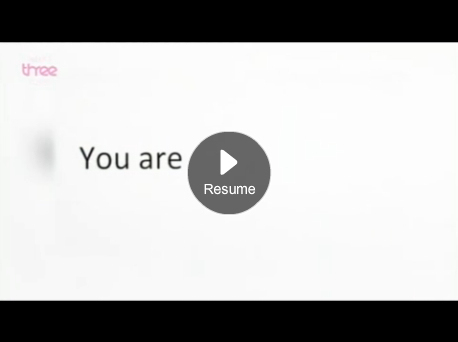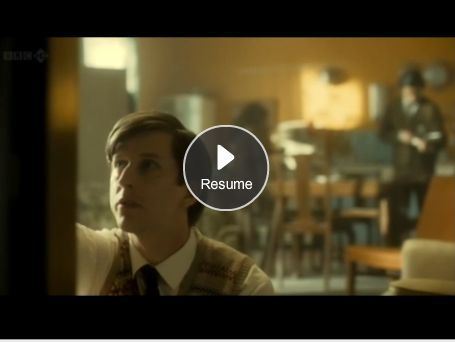Andrew Collins's Blog, page 40
April 1, 2012
His name is Maude
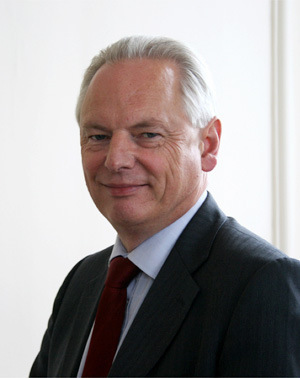
Brilliant. We seem to have had a fuel crisis without there being a fuel crisis. I am often embarrassed to be British, and to live in Britain, but the week just gone has been particularly mortifying. Francis Anthony Aylmer Maude, MP for Horsham and Cabinet Office Minister in the current government, pretty much single-handedly created a national petrol panic which was needless in the first instance, at the very least inconvenient and maddening, and actually dangerous in certain cases. The head of the UK Petroleum Industry Association called the whole thing "self-inflicted insanity."
There have been calls for Maude's resignation, but he isn't hearing them. It may be unfair to blame the whole sorry mess on one man. Equally, it's tempting to see some kind of government conspiracy behind it all, in which Maude was simply playing his part. The notorious, out-of-touch "jerry cans" advice may have exploded, to coin an unfortunate phrase, but in many ways, this might have been a happy rather than unhappy accident.
After all, this government seems to have done very little since their woeful Budget except deflect attention from their woeful Budget. You wouldn't put anything past them. Also, as Tories, they are scarier in many ways than the last lot, comprised as the Cabinet now is, of out-of-touch public schoolboys, led by a PR who is no more interested in politics, pasties, petrol or the greater good of the country than any distant relative of Princess Diana who's married to the elder daughter of the 8th Baronet of Sheffield raised on a 300-acre estate would be expected to be. David Cameron is interested only in looking after his own.
Anyway, I'm blaming Francis Maude. To be honest, I don't care whether he goes or not. He'll be replaced by an identical grey suit and nothing will change. I barely use my car. I'm seriously considering getting rid of it. But all week I've walked past the garage at the corner of my road and it's had queues of drivers snaking out into a main road, causing disruption and ill-feeling for no reason whatsoever. I've seen people queuing up on foot with green petrol cans. Not "jerry cans", because nobody in this century has jerry cans. Nor, Francis Maude, does everybody have a garage. His stupid remark: "When it makes sense, a bit of extra fuel in a jerry can in the garage is a sensible precaution to take." Sensible? Oh yes. Even though it turned out to have been lethal advice based not on sense, but on a dreamy vision of Middle England even the Daily Mail might not recognise.
What I hate about Maude is what I hate about this government, and what I hate about George Osbourne and David Cameron and the rest of them: he seems to have no notion of what it's like to be an ordinary person in this country going about their business. They don't know what "making ends meet" means. They call the millions raised by the 50p tax rate "next to nothing." They get themselves in a PR pickle about pasties because either they've never been in a Greggs – and why should they? – but because they're only worried about what that will play like anyway. I don't care if George Osbourne has had a steak bake or not. But don't run the country if you haven't, that's all, and if you haven't employ someone who has (radical idea?). Because a hell of a lot of people go into Greggs every day, and it's a successful British business that serves ordinary people hot food, and the Government want to tax it out of business because – why? – they think that 20p on the price of a meal is next to nothing, and won't hurt anybody.
So, Francis Maude, who thinks we all have a garage and a supply of 1930s German military petrol containers, is merely a lightning rod for all that's wrong with this depressing government. "It's not for us to give advice on what people should do," he told Sky News, on the day the non-crisis turned into a crisis, careful not to sound like the nanny state of course, because he's a Tory, and in that respect favours less government in the usual hypocritical way of right-wing, free-market politicians. "It is our obligation to tell them what is going on so that they can make their own decisions."
These are the facts of the matter: tanker drivers at five of the seven main supply companies voted in favour of industrial action over terms and conditions, as well as safety standards. Unite, which represents around 2,000 drivers who deliver to Shell, Esso and major supermarkets, is demanding minimum standards for pay, hours, holiday and redundancy. They may still go out on strike – although not until after Easter – but if they don't, who's won? Ordinary drivers, inconvenienced and panicked for no reason? I don't think so. The woman with 40% burns? Definitely not. Unite? No, because we've essentially had a practice run of what it would be like if those greedy, conniving unions had their selfish, money-grabbing way about luxuries like holiday and pay and safety, eh?
From where I'm sitting, the Government seems to have won, in the sense that they've had a week of further distraction from the real issues – NHS, tax – and they've still got Francis Maude if ever there's another emergency in 1930s Germany. If only one of the main opposition parties had a leader worth the job.
(Once again, I speak as someone who was not directly affected by the petrol "crisis," so I'm not moaning on my own behalf.)








March 30, 2012
Big numbers
This week's Telly Addict, apparently flagged on the Guardian front page, which is nice, covers Mad Men on Sky Atlantic; The Voice on BBC1; Britain's Got Talent on ITV1; and Titanic on ITV1. Hope you like it. Be nice if you want to come and play in the comment playground, kids. (The Guardian too some photos of me today for a future byline picture. Only been doing this a year; maybe they've finally noticed me!)








March 25, 2012
The Manners Manifesto 2012
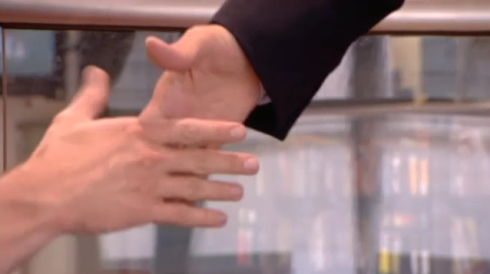
It was new year, 2008. I felt it was time to "solve the problems of the world before it's too late." I know, a lofty ambition. But I'd worked out that we held the key to making the world a better place and that waiting around for politicians to sort it out for us was going to be a long one. I was pretty concerned about the environment in those days (still am, but I'm rather more fatalistic about the planet now – it's clearly too late to save it), and none of what I went on to propose was going to mend the sky or wash the oceans or slow down the melting of the ice caps. It was simply a desire to adopt Derek Batey's famous sign-off from Mr & Mrs:
Be nice to each other.
What followed was The Manners Manifesto. I felt then, and I still feel now, that it is within our gift as individuals to make the world a better place, especially the world immediately around us, by returning to – or a formalising the continuation of – good manners. I republish the Manners Manifesto here as more people subscribe to and read my blog, and I have more "followers", thanks to Twitter, and I feel it may strike a few chords with the decent folk who "follow" me. Also, I wanted to give it a spring clean and update it to include manners on the internet, a burning issue.
Here's how we do it:
Smile. Not all the time. Not at everybody. They'll lock you up. But smile at the person who sells you your ticket at the station. Smile at the person behind the counter at the newsagent, and be glad we still even have ticket sellers and newsagents. Try this: look at yourself reflected in the train window, or the shopfront: your default face is one of tight-lipped, frown-headed anxiety. And with good reason. Now reconfigure it. Don't show your teeth, this is England (or at least, it is where I'm standing) – but allow your lips to soften into a grin.
Say please and thank you. I'd like a medium soya latte, please. I'd like one Lucky Dip for Friday's Euromillions, please. Even if you insist, for whatever American reason, on using the phrase, "Can I get?", suffix it with the p-word. It feels good coming out of your mouth. Combined with a smile (see: 1), it actually takes the edge off the sheer ritualistic, mechanical joylessness of an everyday transaction.
Let that car in. Driving is a blinkin' nightmare, especially in the cities, and even more especially in London. I've almost reached the point where I not longer use the car at all, and am contemplating a car-free future. Hooray. But in the meantime: you're in the car, and you want to get home, or to the shops. Of course you do. It's only natural. But so does that person ahead of you, indicating that he/she wants to cross the lane that you're in, to make a right turn. Why not flash them through? It's one of those maddening high streets that starts at the traffic lights with two lanes then almost immediately bottlenecks into one because of a bus lane, or a parked lorry. Come on: one at a time. You can keep edging forward to keep them out, but they've got to come in at some point. Why not now? And if someone lets you in, give them a friendly wave in the rear-view mirror. If someone cuts you up, or crosses in front without indicating, or jumps a light at a box junction and blocks your path, for a change, why not pull back from mouthing the word "c***" or "twat" at them, which won't alleviate this temporary snarl-up; it will just make the atmosphere worse. Roll your eyes at them, or do an exaggerated tut, as if to say, "Cuh! The traffic, eh? We're all in this together, and the sooner we get home, or to the shops, the better!" (To avoid being called a "c***" or a "twat" yourself, don't drive into box junctions on amber, and use your indicators.) As I was told when I was learning to drive in 1982, driving is easy, it's all the other drivers that make it difficult. You are one of the other drivers.
Be friendly to strangers. We were brought up to be terrified of strangers, but we're all strangers until someone introduces us, and only a very tiny percentage of the people you pass in the street will be paedophiles or murderers or knife kids. Most will be just like you, except with a different coat on, or a different bone structure, or with a few more miles on the clock. So if someone asks you directions, don't run away, or pretend that you're in a hurry, try to help them. Make them feel less like a stranger. Sometimes, the stranger will be shy, and would rather stand around looking lost than risk the humiliation of asking someone directions. If you see this, intervene.
Help old people off or on the bus or train. There's an etiquette here, so let's use our discretion. Not all old people consider themselves old, and might look frail and in need of a seat, or a leg-up, but if you barge in there, they get embarrassed. It's a minefield, but better to be the first person on a bus or in a carriage to offer your seat to someone with grey hair than to sit there, not knowing, willing someone else to do it first. I have found that helping people off or on the bus or train gives you a lift (ironic!) for the rest of the day. And not just the elderly – people with pushchairs, or loads of bags, or the infirm. (Helping blind people without guide dogs is another tricky one, but again, try and judge the situation on its own merits. Blind people are not usually afraid to ask for help, in which case, give it, and don't run away, thinking, ha ha, they can't see me. I think we all know not to pat or fuss guide dogs, don't we? They are irresistible and the most noble of all dogs, but we must resist the urge, as it puts them off their job.)
Say "No, thanks" to Big Issue sellers. I rarely buy the Big Issue. But I smile and say, "No thanks" to Big Issue sellers, which, in terms of manners, is better than looking at the floor, or regarding them with contempt for slowing down your walk to the bus stop with their untidy appearance. Let's be honest, they'd rather you bought a Big Issue. But if you prefer not to, look them in the eye, smile, and say, "No thanks." Your relationship with the homeless is a delicate one, especially in a recession where you might be the one in debt, and worrying about that, while the person without a home has a different set of worries. (You could have to sell your home at a loss; he or she doesn't have one to sell.) I was once approached on the beach at Bournemouth by a beggar who claimed he had lost the return half of his train ticket in the sand. He was obviously a liar. I still gave him some. There are no hard and fast rules. I am more likely to give money to a homeless person who has a dog, but that's just me.
Be polite to Jehovah's Witnesses. Yes, I do object to people knocking on my door after dark, as I always think of the old lady I used to live next door to in Streatham, who would have been terrified of a knock after dark, even if it was from an accredited British Gas salesman hawking for her electricity business. I think it's OK to pretend you're not at home if the doorbell goes after dark. You're doing it on behalf of the old people. But if you do answer the door and it's a young lad with a case full of inferior cleaning products, or two smartly dressed men asking if you ever think about Jesus Christ (or at least getting to that key question after luring you into small talk about non-religious matters), just politely tell them that you are not interested or that you are busy and smile as you close the door. No matter how annoyed you are for being disturbed, at least you can go back to the telly – they have to keep knocking at all the other doors, which must be shit. I am even polite to canvassing politicians.
Never swear at people on the other end of helplines. They are just doing their job. If they cannot help you, ask to speak to their supervisor. During my BT problems in the summer of 2007 (by far the worst stretch of customer dissatisfaction I have ever experienced – but then again, I am not a Santander or LA Fitness customer), I reached the point of no return and calmly informed the Scottish gentleman on the other end of the line that I was about to swear, but not at him, only through frustration, and that he should not take it personally. Then I swore. ("This is fucking ridiculous," were my words.) I'm not proud, but I think this preface helped. Keep them in the loop. Stay calm, and if possible, stay PG certificate. There's enough tension in the world of customer service without blaming it on someone with a job on the other end of a phone. It's not his/her fault, it's the system's, or the management's.
Never, ever drop litter. This may seem to be outside the remit of manners, but it's not. It's about respecting the space we share. It's an extension of smiling and being nice. I've seen grown adults eat the last crisp in a packet and literally let the packet drop from their hand to the pavement below, without even a look back. Putting a coffee cup neatly on the pavement is no better than chucking it, overarm. Put it in a bin. If the nearest bin is full, take it to the next one. That cellophane bit around the cigarette packet? Just because it's see-through doesn't mean it isn't there when you drop it to the floor. I live near a parade of shops with a KFC-copycat chicken outlet on it; pretty much every morning, especially Saturdays and Sundays, I see boxes and bags with this place's logo on them, dropped in the streets adjoining. Clearly, late nite chicken eaters are beyond the niceties of etiquette, and maybe even drunk. I tut to myself at them, even though they have long gone. Even drunk people should be ashamed of littering. At least vomit can be sluiced down.
Leaving bags of stuff outside charity shops when they're closed? Come on! The signs are clear enough. Just because you're a superhero for giving an old jigsaw and some jumpers to charity it doesn't mean you can just dump bin bags by night with a clear conscience. Yes, the old ladies who work in there are volunteers, but does that mean they can think of nothing nicer at the start of a working day than sorting through your rain-sodden rubbish before they can even get in the door? On the same ticket, if you're recycling cans or bottles, don't just tuck the empty plastic bag down the side of the bin because fuck it, if they want you to save the planet, they can chuck your sticky bag away as well.
Talk to people at the checkout. You don't have to say much. God, even something inane like, "Busy in here, today, isn't it?" or "Not as busy as usual in here, today, is it?" might put us on the road to peace in the Middle East. People everywhere are, by and large, just doing their jobs. When a man or woman in a brightly-coloured kagoule offers you a free newspaper, the very existence of which makes your blood boil, remember that it's not his or her fault – they're just trying to earn an honest crust, like you – so smile and say, "No, thanks" (see: 6). It takes a second. You don't even have to stop walking. Likewise, if someone tries to give you a flyer, or a card, don't take it as an affront. And if their technique is to hold their arm outstretched in front of you, which is an oppressive, invasive action, why not say, "Excuse me" as you push past?
Don't swear when there are kids about. I do, occasionally, if I forget when – say – I'm in a family-friendly eaterie, and it's not nice. Reel those swear words in.
Think before you post that nasty comment online. Seriously. Read it back. Then imagine you are the person who'll be on the receiving end of it. How would you like it? If you're on Twitter, have you "@"-ed the person you're about to insult into the Tweet? If so, remove the "@". Everyone is entitled to an opinion and to like/dislike anyone in the public eye. (If you're replying to a Tweet, check first that you're not automatically replying to everyone "@"-ed into the original Tweet. Do they all need to read what you think?) I reserve my hate for elected politicians, dictators and people who are cruel to animals, but even then, I would think very hard before insulting them in a public forum. There are some Tories in the Cabinet I hate with every fibre of my being, but not personally. Save your hate for the system that allows the super-rich to avoid tax and for murderous tyrants to stay in power and for the planet to be polluted industrially because of the power of unregulated industry with deep pockets. (Most of the crimes committed on the internet are basically down to manners. Do not say anything to anyone online that you wouldn't say to their face. Simple as that. And if you must post anonymously – I don't really have a choice – do not use that cloak of anonymity to be a more horrible bastard than you are in person.)
Oh, and don't talk, eat loudly or text in the cinema. Basic stuff. The cinemas – even my beloved arthouse chain the Curzon – sell crunchy food. It's their fault, ultimately, but if you must buy crisps or popcorn or sweets in noisy bags, try and time your racket with a racket on the screen. Talking is only permitted at the lowest possible volume, a comment whispered into the ear of an adjacent companion and no conversations. And turn your phone off, you moron. (Sorry to have to call you a bad name, but really?) If your wife is likely to go into labour, or a relative is about to die, stay by his or her side; don't leave him or her and go into the cinema and leave your phone on. (I'm assuming that's why people leave their phones on in the cinema? I mean, it has to be something life or death, right?) Key thing to remember: the cinema is not your front room. Other people have paid to come and sit in it. Respect them with your actions.
These are not impossible dreams, are they? The one that have survived from the first draft weren't in 2008, and they aren't in 2012. It's all about a state of mind. It's remembering that you share the planet, which is a lot easier if you first remember that you share Waitrose and the high street and the train carriage and the motorway.
There's nothing in there to argue with, really, is there? It's common sense. All I've done is arrange it into a nice list, with numbers, but I'd like to hear your thoughts.








March 24, 2012
Be nice to each other
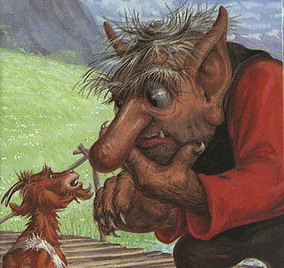
If you didn't see The Anti-Social Network, Richard Bacon's timely BBC3 investigation into internet "trolls", cyber-bullying and the desecration of RIP tribute sites, you've a couple more days before it disappears from the iPlayer. I hope the BBC repeat it; it really is required viewing if you regularly spend time on the internet, especially if you use Twitter or Facebook. The fact is, there's some nasty stuff going on at the more anonymous end of the worldwide web. We all know about trolls. In the past, on this blog, and on Twitter, and more recently when I've put my head above the parapet on the notoriously brutish Guardian website, I've been lightly trolled. My first response is always to reason with them, but this pretty much always backfires, because a) they are aiming to elicit an emotional response and in doing so you "feed" them and encourage them, and b) they don't respond well to reason, or calm, or any of the other tools I often use on detractors or the just plain rude.
A couple of weeks ago, and this is atypical of the majority of the dialogue that unfolds there, some bright spark posted this comment beneath my Telly Addict column on the Guardian site:
"Andrew Collins is ill-qualified to judge the creative efforts of others; the shows he has been involved in writing – the truly lamentable Grass, and Not Going Out – have been, without exception, excrement."
Excrement. Now, clearly, this person (and let's go mad and assume it's a "he") is entitled to his opinion, and to state it in a public forum. After all, the digital Guardian encourages it – nay, demands it! I pointlessly rose to it, but with a fairly vanilla response about the subjectivity of opinion, mine and his. He responded:
"Well done, you have recognised my comment as an opinion and therefore subjective, give yourself a pat on the back. That is exactly the kind of pedantry I would expect. You don't respond well to criticism at all do you? If you are going to work in a creative field you are going to have learn to accept it."
Thanks for the advice. Now, to be fair, this is not typical behaviour for a troll, so let's go mad and say that this man isn't one. However, when somebody puts their hand up and tells you that your work is "excrement" they are using the tactics of a troll. It all comes down to manners in the end.
Which is why I am about to republish my Manners Manifesto from January 2008, except updated to include manners on the internet, which is a growth area for rudeness.
The non-troll above is right in the sense that, yes, I do work in a "creative field", and I can be thin-skinned sometimes, but I don't accept that in this field, I must "accept" having my work called "excrement" by a man hiding behind a pseudonym, totally untraceable, when my "creative" work is done in public, in forums where I am totally identifiable and traceable.
I have been moderating comments on this blog for years now, and the abuse has pretty much dried up, which rather proves that without a platform, trolls soon lose interest.
My guess – and I may be wrong – is that if the man above met me in the street, or in a social situation, he would not tell me that he thought Grass and Not Going Out were "excrement." He would either not mention it, or he would say that he didn't really like them, if pushed for a preference. He wouldn't, because if he did, it would be rude. Here is the news: it is just as rude on a website.
Anyway, I bet he hasn't seen every episode of Not Going Out. Episode Two of Series 3, which I co-wrote, was BRILLIANT.
The Manners Manifesto 2012 will follow over the next couple of days – I want to post it separately so that it can be accessed in its pure form. In the meantime, be nice to each other, as Derek Batey used to say on Mr & Mrs.








March 23, 2012
Boom
Telly Addict number 46 – not that anybody's counting – is up. This week, I'm all over Richard Bacon's The Anti-Social Network on BBC3; the new one from Heroes creator Tim Kring, Touch, on Sky1; and Hit The Road Jack on C4. Can't believe we've been doing this for almost a year. (When The Apprentice and Four Rooms returned this week, it was like Groundhog Day. I'm not watching The Apprentice this year, I'm afraid, but Four Rooms has yet to jump the shark. I might review series two next week, although I'm duty bound to cover The Voice and Britain's Got Talent too, and Titanic, and maybe the final TV Burp?) I can't imagine why you'd want to, but if you're new to these weekly antics, all 46 are archived here.








March 19, 2012
Sky sports
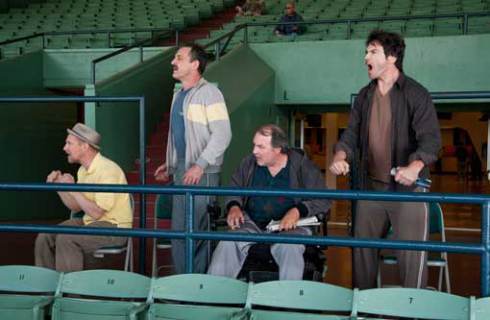
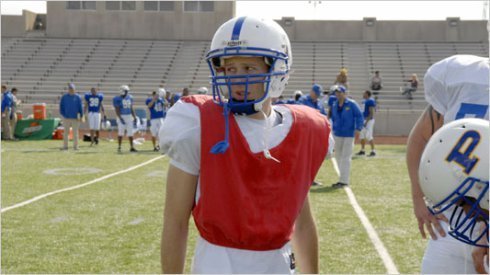
Having emerged from the full-on, round-the-clock, seven-days-a-week flotation tank of Mr Blue Sky, I am now in the luxurious position – for the first time since Christmas – to occasionally write blog entries about films and telly for the simple pleasure of doing so, which I'm sure is something I used to do?
First, then, let us consider two US imports, both showing on Sky Atlantic (sorry about that, Sky refuseniks), one brand new, the other six years old, both linked by one defining fact. They make me interested in a world of sport that I have zero interest in.
The first is Luck, which comes from HBO, top-heavy with talent from the movies, and created by TV deity David Milch (NYPD Blue, Deadwood – not that I've ever seen Deadwood; you may start ordering me to rectify this … now). I am not big on sport in general. I was obsessed by football as a kid, mainly in the 1970s, and could name every ground of every club in the first division, and draw its club badge from memory. I drifted away from it in the 80s, when films and post-punk music filled my head. I've never been that interested in other sports. And I've certainly never cared about horse racing. Luck, now at its fourth episode, is set in the world of horse racing, and in the subculture of gambling that emanates from it.
Not only do I not care about it as a sport, as an animal lover I am alarmed by the cruel way in which racehorses are treated, and dispatched when injured. I believe I am right in saying that five horses died at the recent Cheltenham Gold Cup? (Apparently, the British Horse Racing Authority say that with 90,000 horses running a year in Britain, this is a minimal fatality rate.) But great drama does not rely upon an audience's foreknowledge of, nor participation in, a specific field. It should educate and enlighten. Luck does this in dazzling, tactile style. From the moment Michael Mann's first episode started, we were dropped into a rich ecosystem of trainers, owners, riders, agents, gamblers and gangsters – not to mention animals.
It looks incredible. Even an average HBO series looks as good as any Hollywood movie, and this is above-average. It takes you from the stands onto the track and then behind the scenes, into the stables, and to the places where deals are done, and horses are traded. It then leaks out into the bars and hotels where business continues while the horses sleep. With talent like Dustin Hoffman, Nick Nolte, Dennis Farina, Kevin Dunn and John Ortiz on show – not to mention Joan Allen, who's just been introduced, and Michael Gambon, who's promised – it's human drama of a particularly salty type. Mumbled? Yes, Luck is one of those shows for grown-ups, like The Wire or Generation Kill, that speaks its own language and assumes you are alert and patient enough to catch up.
Because of the initial impenetrability of the world it inhabits (and we are looking here at people who appear to do nothing but think about horses – except perhaps Hoffman's mobster, who thinks chiefly about money), it took me until Episode 3 to truly click with it. But it was a revelation. You have to work at a series like this. But what payback.
So, my Saturday nights are now illuminated and clouded with steaming equine breath by Luck. Friday nights, which actually occur on Tuesday nights, are lit up by Friday Night Lights, an NBC series about high school football which ran for five seasons from 2006 and is now showing, box set style, on Sky Atlantic, having previously been patchily and lovelessly shown on ITV4. Here, again, is a show about sport, and about fanatical local devotion to sport, which is a world away from my own, but which has hooked me right in.
Created by Peter Berg – it began with a movie of the same name – it takes a factual basis and fictionalises it in the made-up small town of Dillon, Texas, where the local Panthers are less a team, more a way of life and death. Regardless of the sport, which still strikes me as lumpy and brutish and detrimentally constructed around intervals, this presents a further layer of devotion that's foreign to me. But it's conveyed with such warmth, understanding and empathy, again, you'd be hard-hearted not to get drawn in.
Kyle Chandler plays the new coach, whose reputation hinges on the score of a game at the end of each week, and among the stars of his young team are Taylor Kitsch as the Keanu Reeves-like airhead Tim Riggins, Scott Porter's paralysed Jason Street and Zach Gilford's chorus-girl ingenue Matt Saracen. Connie Britton is exceptional, too, as the Coach's wife. It's a soap – a description I used on this week's Telly Addict and which drew some ire from fans of the show, although I would never use "soap" as a qualitative term. FNL is a show that centres around a whole town's worth of characters and traces their interconnected lives on a weekly basis, which is pure soap opera. And it's sublime stuff, fluidly filmed in hand-held style, and run on the natural authenticity of partly improvised dialogue and blocking.
I love these two shows, albeit FNL with a more romantic devotion and not a single caveat, which can't be said for Luck, which will never even reach its second season, let alone its fifth. Either way, I find myself currently caring about the result of fictional horse races and football games.
As for the unhappy fate of Luck: I was naturally horrified to find that two horses were actually euthanised after injury in the making of its pilot and one subsequent episode, although in many ways, the horses were just racing for the cameras, as they would be if racing for real – neither is crueller than the other, you might argue. But after a recent third injury, which also resulted in an animal being put down, Luck basically cancelled itself, with regret, and with representatives from PETA fuming that their dire warnings were not heeded.
Animals can never be categorised as "actors", as they do not volunteer. You can train them, but they are always working animals, not thespians. And no worker, human or otherwise, should be put in danger.
So, Luck is about to run out, and FNL has already finished (albeit with around 70 episodes yet to air – yippee). It would be better if both shows were broadcast on a free-to-air channel, but Friday Night Lights is already boxed, up to Season 3 at least for Region 2. It really is – as fans have been insisting for some time – one of the modern greats, and worth seeking out.
You won't see me at Cheltenham any time soon, but then nor would you see me volunteering for the army, and I love dramas about world wars. The best can take you somewhere you haven't been.








March 17, 2012
Soap
This week's Telly Addict looks at White Heat, BBC2; The Sarah Millican Television Programme, BBC2; and Friday Night Lights, currently showing from the beginning on Sky Altantic. Apparently, in a Guardian editorial meeting my name came up in a positive light for the way I deal with people in the comments section under Telly Addict. Hey, all I do is enter into a dialogue with anybody who's being friendly and discussing the TV shows, and hold back from typing the first thing that comes into my head when a troll has an anonymous pop.








March 16, 2012
New world record
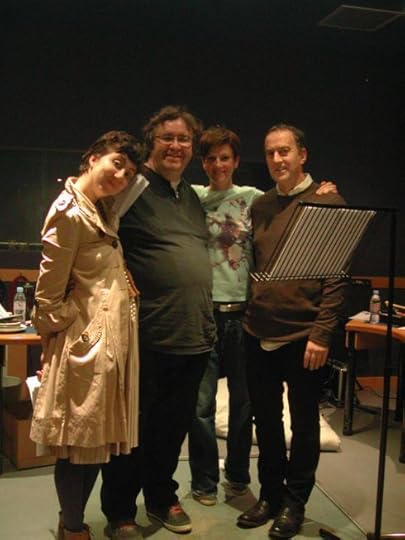
It's a wrap, loves. Angus Deayton was our last guest of the Mr Blue Sky recording. He was helicoptered in to play an urbane Catholic priest in just one episode, which comprised three scenes that he unsurprisingly nailed. It must have been weird for him to turn up at 4.30 on the last day of a gruelling seven-day record and find bodies, Pret wrappers and discarded copies of OK! and G2 everywhere, and fellow actors in advanced states of hysteria and sleep deprivation. But he is a sport and picked his way delicately through the carnage. Greg Davies came in earlier and promised to put his scenes as the Customs Official (another spoiler!) in the can in one take. I won't say whether or not he did, but he won the crown for the most swearing in the studio. And being the tallest, obviously, but that's true wherever he goes outside of the Harlem Globetrotters. There was a lot of man in the room when he was in there with Mark and Justin.
Enjoy some final pics of actors in situ. It has been an exceptional week of fiction and fact. Although most of the cast dashed off (in Mark's case, to his final performance of A Midsummer Night's Dream at the Lyric) we had a low-key "wrap party" at the Goldhawk pub, where myself, Anna, Wilfredo, Anke, Rob and – actors! – Javone and Navin – supped a few pints and a couple of glasses of free Swedish cider, forced upon us by a promotion at the pub. No doubt we will all fall under a heavy blanket of depression tomorrow. It's normal. It's what happens. But it's been a memorable week.
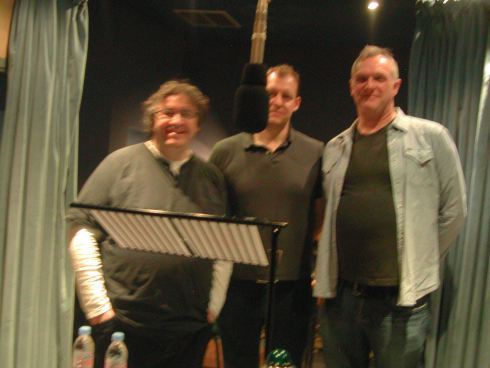
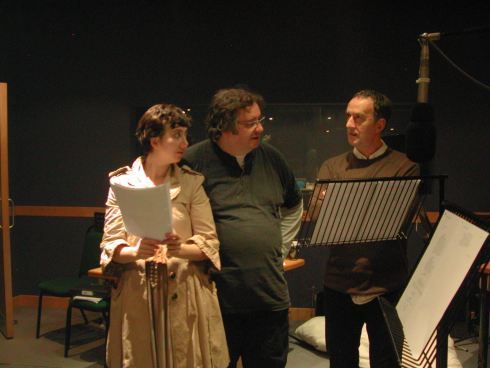
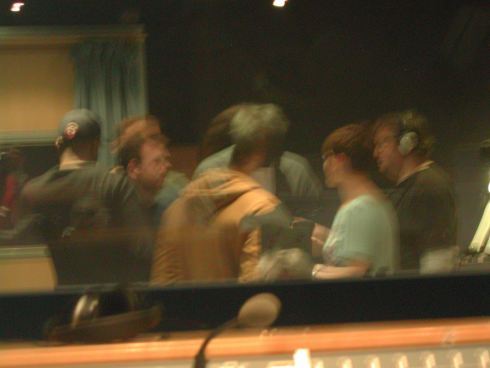
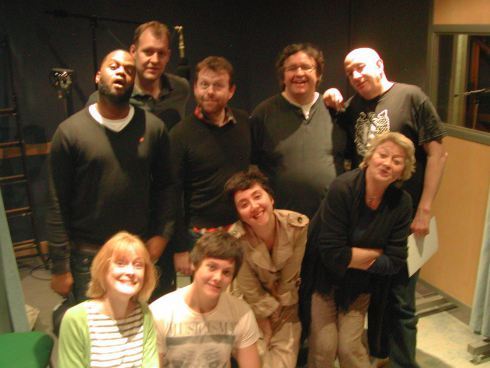
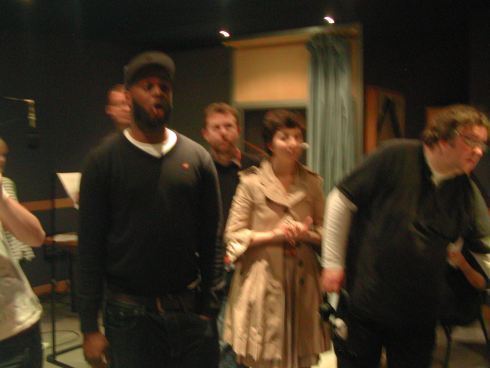
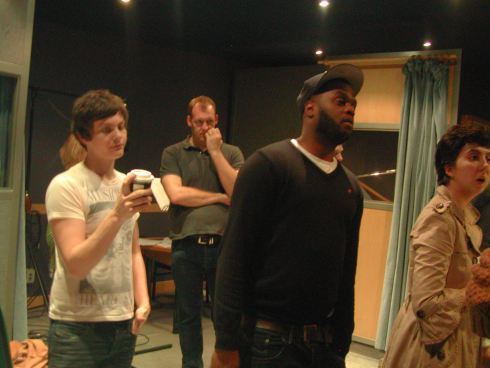

It's over
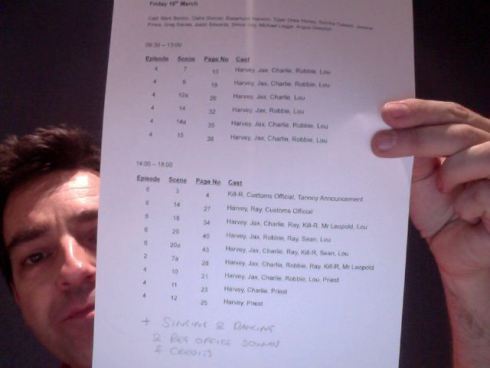
Those following my Electric Light Orchestra-themed headlines this week will have guessed today's. For today is Day Seven, the final day of the recording of Series 2 of Mr Blue Sky. Above is today's schedule. I don't know if you are able, or can be bothered, to read it, but it lists, in order, every scene we have yet to record, and because today involves the entire cast (minus Navin), plus three star cameo turns, Simon Day, Greg Davies and Angus Deayton. (I know, pretty tasty.) All you'll see, Harvey ie. Mark Benton, is in every scene except one. This man is earning his radio pittance.
Here are a few of Rob's photos from yesterday, when the whole family performed a scene from the wedding episode (spoiler alert!), outside the studio in the post-apocalyptic car park of the industrial estate that is earmarked for destruction. (My face, as you can see above, is similarly ravaged, except by biscuits.)
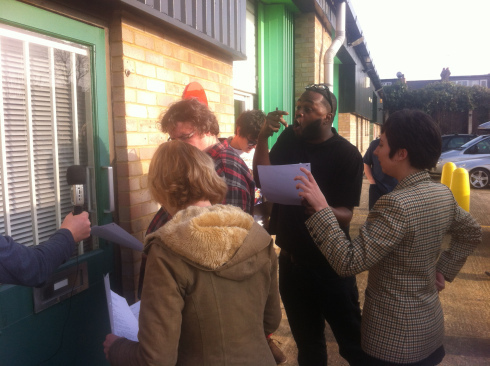
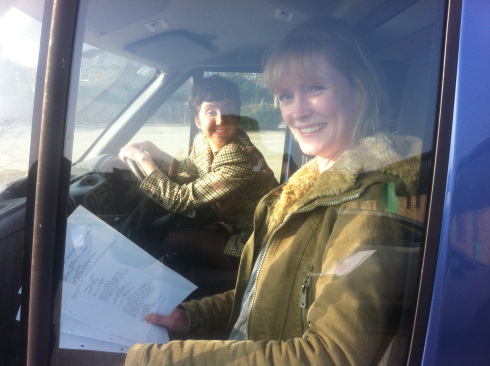
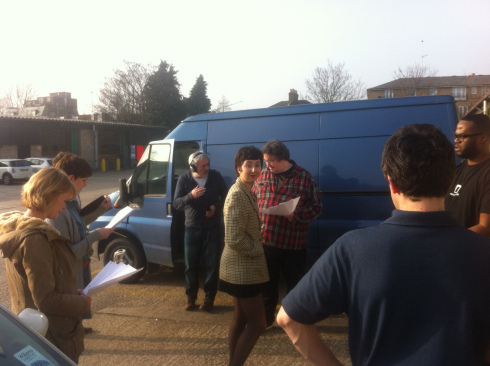
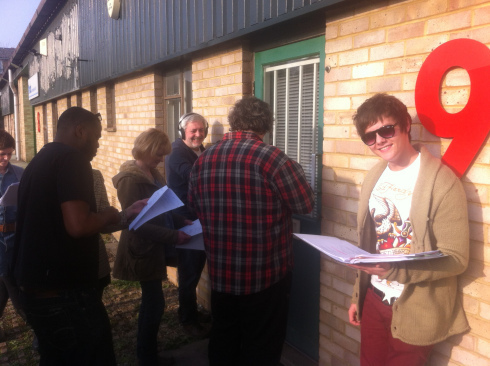
I bet The Archers never do this. (Actually, they might. I didn't know anybody did this in radio drama.)
At 11.40am, after a full morning's acting and green-light pressing, we are on schedule. Would you like to see the fictional Easter family pretending to be in a car?
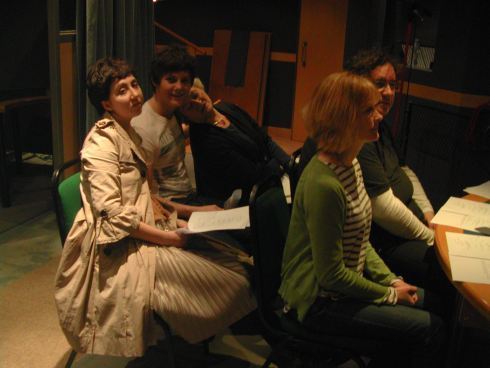
I'm going to post this now, even though we're totally in the can just yet. I'll put the last batch of pictures up tomorrow.

March 15, 2012
Strange magic
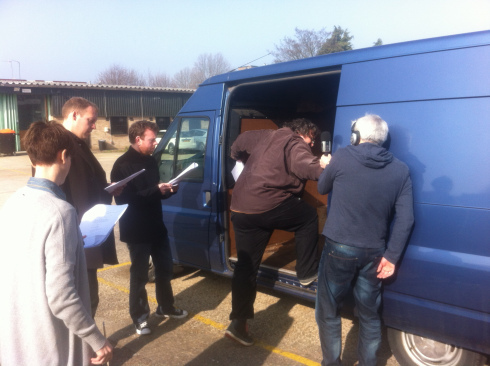
Day Six of Mr Blue Sky series 2. Though I didn't log it, yesterday was Day Five, which was actually a half-day, and I wasn't able to attend the recording due to my Guardian Telly Addict videocast, which had to be moved in order for me to be available for the whole day tomorrow, which will be Day Six and the final day of the recording. Yes? (Telly Addict will go up at the usual time, around 4pm on Friday.) Having recorded Simon Day – who cameos in this series as the book-burning neighbour Mr Leopold – and Mark outside in the car park on Tuesday, and Claire and Navin in a van in the car park yesterday, studio director Wilfredo had us all outside in the cloudless sunshine again this morning for some more exterior scenes (you type "EXT." in a radio script, and you do not imagine you'll actually be outside, but Wilfredo is something of a guerilla sound recordist). Frankly, it was lovely to be able to process some Vitamin D after a week of being anything but free range.
Above, in a photo taken by production assistant Rob, you can see producer Anna, Justin Edwards (who plays Harvey's best friend, the oncologist Ray, and has had a nice neat haircut for his part in the new series of The Thick Of It, which he is making concurrently), Michael Legge (who plays Harvey's megalomaniac boss Sean and is, in real life, hungover), Mark (method acting the sound of Harvey climbing into a van), and Wilfredo. Below, for a later scene in which Harvey and Ray drive to Gatwick (hey, no spoilers!), Wilfredo records them in the cab of the same van.
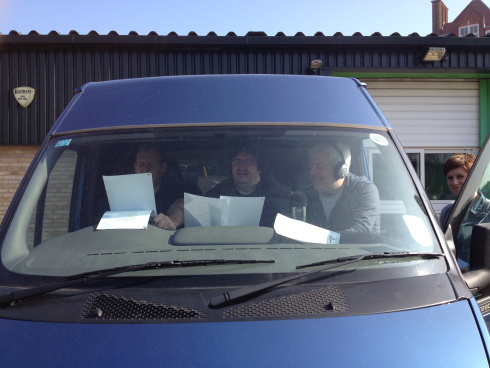
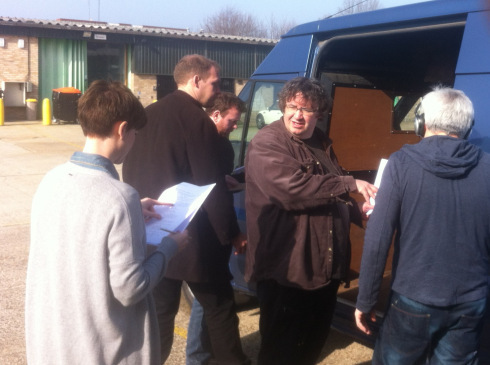
Hitchcock style, I appear in the next photo, too. And that's not my iPhone, as I will never buy an iPhone, it's Anna's.

This happened last year, on the recording of the first series: a certain degree of hysteria has set in. There is a lot more mucking about in the studio. It's fine. Mark and Justin were telling jokes in there this morning and kindly offering them to Michael for an upcoming stand-up gig. None of them are suitable. This is how you want actors and comedians to behave under pressure. It's been kind of the opposite of a rollercoaster ride, the recording, in that it's pretty steady – despite the massive emotional ups and downs of the scripts, naturally – working our way through the scenes, ticking them off, or making them go green on Anke's grid. I have to say, it's been as physically draining and mentally demanding as I remember Series 1 being, except cranked up, as we're doing half as many episodes again this time. ("Physically draining" sounds unlikely – not to mention insulting to everyone with a physical job – as I am mainly just sitting on a chair, listening and eating biscuits, but I'm not used to eating so much wheat, so it does take it out of me. After seeing what happens when Richard Herring occasionally suggests that his job is hard, I'm not going to make the same mistake. I'm not even paying for these biscuits.)
I can't believe we actually finish tomorrow. (Finish recording and say goodbye to the lovely actors; the edit begins on Monday, of course, with just three weeks to go before the first episode airs on Radio 4.) As I sign off, I am listening to a professional actor saying the word "recalcitrant" in the studio, a word nobody except Will Self says in real life, and which I only put in because I've always liked the sound of it. As Harrison Ford famously said to George Lucas during the filming of Star Wars: "You can write this shit, George, but you sure as shit can't say it."

Andrew Collins's Blog
- Andrew Collins's profile
- 8 followers


